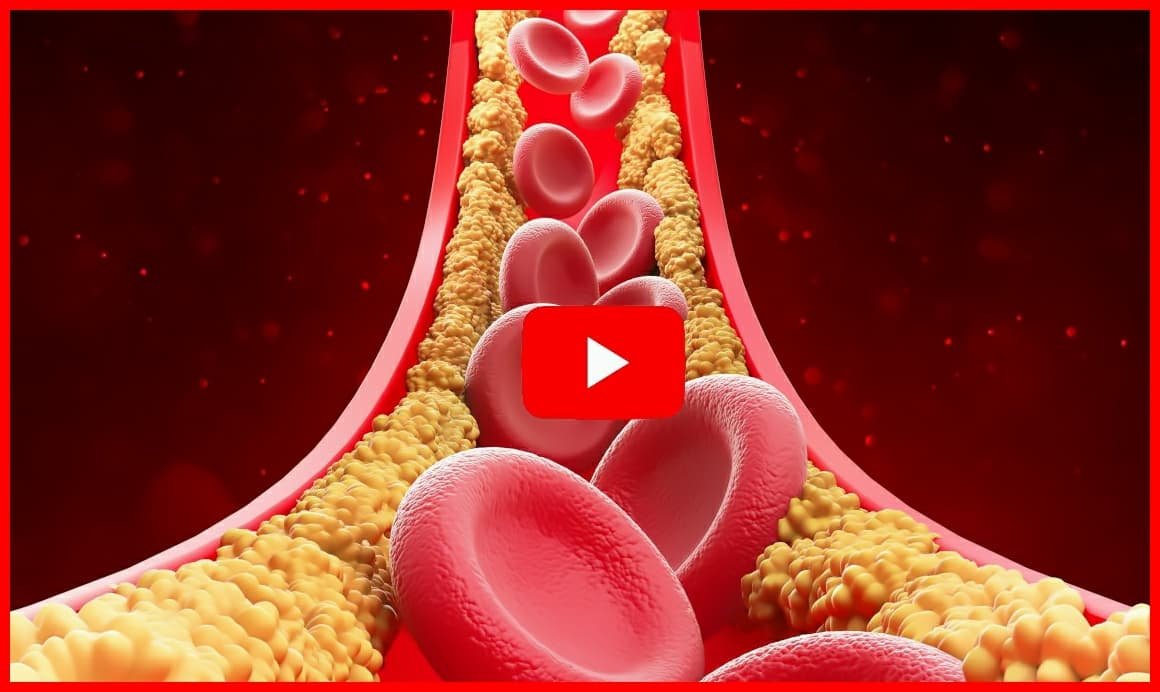Exercise and Heart Health: The Vital Role of Physical Activity in Maintaining a Strong Heart
In the fight against heart disease, regular physical activity stands out as one of the most potent and accessible strategies. The connection between cholesterol and heart health is complex, yet consistent exercise acts as a cornerstone for maintaining cardiovascular wellness. Beyond burning calories or managing weight, exercise is a proactive, life-affirming practice that strengthens the most vital organ in the body—the heart—while offering broad protective benefits.
How Exercise Supports Cholesterol Management
Physical activity positively influences cholesterol balance, improving blood lipid profiles and overall cardiovascular function:
-
Aerobic exercises like walking, jogging, cycling, swimming, and dancing help:
-
Increase high-density lipoprotein (HDL)—the “good” cholesterol that removes fats from the bloodstream.
-
Decrease low-density lipoprotein (LDL)—the “bad” cholesterol that accumulates in arterial walls and contributes to plaque formation.
-
Maintaining this balance is crucial because elevated LDL levels are strongly linked to atherosclerosis, the process that narrows arteries and raises the risk of heart attacks and strokes.
Lowering Triglycerides and Improving Blood Vessel Health
Exercise also helps reduce triglycerides, another blood fat associated with cardiovascular risk. High triglyceride levels often coexist with other lipid abnormalities, compounding heart disease risk.
-
Endothelial function, or the health of blood vessel linings, improves with consistent activity.
-
Healthy endothelium is flexible and resilient, allowing arteries to expand with increased blood flow.
-
Poor endothelial function stiffens arteries and promotes plaque buildup—exercise helps prevent this progression.
Regulating Blood Pressure
Hypertension, or high blood pressure, damages arterial walls and accelerates atherosclerosis. Regular physical activity:
-
Improves vascular elasticity
-
Reduces systemic vascular resistance
-
Lowers overall blood pressure
By easing mechanical stress on arteries, exercise reduces the likelihood of injury and plaque formation.
Combating Inflammation
Chronic inflammation is a major driver of cardiovascular disease. Inflammation within blood vessels can destabilize plaques and increase heart attack risk. Exercise reduces systemic inflammation markers like C-reactive protein (CRP), directly addressing one of the root causes of heart disease.
Building a Sustainable Routine
Creating a consistent, sustainable exercise routine is more important than perfection:
-
Aim for moderate to vigorous activity several times per week.
-
Small efforts—like a brisk walk at lunch, weekend bike rides, or a gentle swim—accumulate over time.
-
Consistency strengthens the cardiovascular system and builds resilience against future risks.
Even modest, regular activity contributes significantly to heart health, reinforcing that exercise is not just preventive—it is restorative and life-enhancing.
In conclusion: Exercise is a cornerstone of heart-healthy living. By improving cholesterol levels, lowering triglycerides, enhancing blood vessel function, reducing blood pressure, and combating inflammation, it protects your heart from multiple angles. Consistency and enjoyment are key—every step, stroke, or movement you take strengthens your heart and empowers you to live a longer, healthier life.
Atherosclerosis Risk Factors: Understanding the Silent Threat Lurking in Your Arteries
Atherosclerosis, often called the silent killer, is a progressive disease marked by the accumulation of cholesterol-rich plaques within arterial walls. Over time, this gradual narrowing of blood vessels restricts blood flow, increasing the risk of heart attacks, strokes, and other serious cardiovascular events. To fully understand cholesterol’s role in heart disease, it is essential to examine the risk factors that contribute to atherosclerosis and how they interact to shape individual vulnerability.
Genetic Predisposition
Your genes play a key role in determining susceptibility to atherosclerosis. Some individuals inherit genes that predispose them to high cholesterol levels or abnormal lipid metabolism, increasing plaque formation risk regardless of lifestyle.
-
Important point: Genetics are not destiny. Lifestyle choices—diet, exercise, smoking habits, and weight management—can mitigate or exacerbate inherited risks. Recognizing genetic predisposition allows for targeted, proactive strategies to protect your heart.
Dietary Factors
Diet is one of the most modifiable risk factors.
-
Harmful patterns: Diets high in saturated fats, trans fats, and refined carbohydrates increase LDL cholesterol levels, promoting plaque accumulation and arterial inflammation.
-
Protective patterns: Consuming fruits, vegetables, whole grains, lean proteins, and healthy fats—found in nuts, seeds, and oily fish—supports healthy lipid profiles and reduces atherosclerosis risk.
Obesity and Sedentary Lifestyle
Excess body weight, particularly abdominal fat, is a potent contributor to heart disease:
-
Raises LDL cholesterol and triglycerides
-
Lowers HDL cholesterol, the protective “good” cholesterol
-
Promotes insulin resistance and metabolic syndrome
Sedentary behavior compounds the problem, as inactivity worsens weight gain and lipid abnormalities, creating a vicious cycle that heightens cardiovascular risk.
High Blood Pressure (Hypertension)
Hypertension exerts constant stress on arterial walls, causing damage and inflammation that accelerate plaque growth.
-
Often asymptomatic until severe damage occurs
-
Regular blood pressure monitoring and management are essential to reduce cardiovascular risk
Smoking
Tobacco use introduces harmful chemicals that damage the endothelium, the delicate lining of blood vessels.
-
Reduces vessels’ ability to dilate and repair
-
Promotes oxidation of LDL cholesterol, a key step in plaque formation
Quitting smoking is one of the most effective ways to lower atherosclerosis risk.
Diabetes
Poorly controlled blood sugar dramatically increases atherosclerosis risk:
-
Damages blood vessels and promotes inflammation
-
Leads to abnormal lipid profiles, with high triglycerides and low HDL cholesterol
-
When combined with high LDL, diabetes accelerates plaque development and destabilization
A Holistic Approach to Cardiovascular Health
While some risk factors, like genetics, are beyond control, many are entirely modifiable:
-
Balanced diet rich in fiber, antioxidants, and healthy fats
-
Regular physical activity
-
Smoking cessation
-
Blood pressure and blood sugar management
Addressing these factors holistically not only lowers cholesterol but also tackles the broader spectrum of threats to heart health.
Key takeaway: Understanding atherosclerosis risk factors empowers you to make informed, proactive choices. Small, consistent lifestyle changes—combined with medical guidance when necessary—can dramatically reduce your risk of plaque buildup and pave the way for a healthier, stronger heart.
🏆 Lipid Control Plus is a multi-ingredient food supplement designed for people who want to take comprehensive care of their cholesterol levels, liver health and cardiovascular system. The product has been created on the basis of 8 natural ingredients.
🏆 Regular use of Lipid Control Plus helps to take care of the lipid profile. The product supports detoxification and the flow of digestive juices. Lipid Control Plus also prevents the accumulation of fats and improves their removal by the liver. Consumers will appreciate that the product supports heart health and supports proper liver function.
Cardiovascular Risk Factors: The Critical Elements That Elevate Your Heart Disease Risk
Cardiovascular risk factors are a complex interplay of physiological, behavioral, and environmental elements that collectively determine the likelihood of developing heart disease. While cholesterol is often the primary focus, it is just one piece of a larger puzzle. Understanding the full spectrum of risk factors—and how they interact—empowers you to take proactive measures that can protect your heart and improve long-term health outcomes.
Age: The Inevitable Risk Factor
Age is a non-modifiable but important determinant of cardiovascular risk. As we get older, arteries naturally stiffen, and the cumulative effects of other risk factors become more pronounced.
-
Men generally face higher risk at earlier ages.
-
Postmenopausal women experience a significant rise in risk due to declining estrogen, which normally provides cardiovascular protection.
Early awareness and intervention are key to maintaining heart health as we age.
Gender Differences
Men and women experience heart disease differently:
-
Men: Tend to develop heart disease earlier in life.
-
Women: Risk increases sharply after menopause due to hormonal changes.
Gender-specific strategies, including lifestyle adjustments and monitoring, are essential for optimal prevention.
Cholesterol Levels
High cholesterol—particularly elevated LDL (“bad”) cholesterol—is a major modifiable risk factor.
-
LDL infiltrates arterial walls, triggering inflammation and plaque formation.
-
Plaque rupture can lead to blood clots, resulting in heart attacks or strokes.
Managing cholesterol through a combination of diet, exercise, and medication when needed is a cornerstone of cardiovascular risk reduction.
High Blood Pressure (Hypertension)
Hypertension silently damages arteries over time, promoting inflammation and accelerating plaque buildup.
-
Often asymptomatic, earning its reputation as the “silent killer.”
-
Regular monitoring and management via lifestyle modifications and medications are critical to prevent arterial damage.
Diabetes
Poorly controlled blood sugar significantly amplifies cardiovascular risk.
-
High glucose levels damage blood vessels and increase oxidative stress and inflammation.
-
The combination of diabetes and high cholesterol creates a synergistic effect, dramatically increasing the risk of heart attacks and strokes.
Behavioral Risk Factors
Many cardiovascular risk factors are modifiable through lifestyle changes:
-
Smoking: Damages the endothelium, promotes oxidative stress; quitting dramatically improves heart health.
-
Physical inactivity: Leads to weight gain, high cholesterol, and hypertension; regular exercise reverses these effects.
-
Unhealthy diet: Diets high in saturated fats, trans fats, and sugar contribute to plaque formation.
-
Excessive alcohol: Raises blood pressure, triglycerides, and cardiovascular strain.
Psychosocial Factors
Mental health and social environment also influence cardiovascular outcomes:
-
Chronic stress, depression, and social isolation can elevate blood pressure and inflammation.
-
Addressing mental well-being is a vital component of a comprehensive heart-health strategy.
Taking a Proactive Approach
Understanding the full spectrum of cardiovascular risk factors enables informed, proactive action. While some factors—like age and genetics—cannot be changed, most risks are modifiable through:
-
Heart-healthy lifestyle choices
-
Medical intervention when necessary
-
Consistent monitoring and self-care
The path to a healthy heart begins with awareness, is strengthened by action, and is maintained through lifelong dedication to wellness and resilience.
🏆 Lipid Control Plus is a multi-ingredient food supplement designed for people who want to take comprehensive care of their cholesterol levels, liver health and cardiovascular system. The product has been created on the basis of 8 natural ingredients.
🏆 Regular use of Lipid Control Plus helps to take care of the lipid profile. The product supports detoxification and the flow of digestive juices. Lipid Control Plus also prevents the accumulation of fats and improves their removal by the liver. Consumers will appreciate that the product supports heart health and supports proper liver function.
YOU MAY ALSO LIKE:
Cholesterol Uncovered: The Truth You Need for Better Health
Cholesterol Explained: Your Path to a Heart-Healthy Lifestyle
Understanding Cholesterol: The Ultimate Guide to Heart Health
Managing Cholesterol for a Healthier Life: Simple & Effective Steps
Cholesterol Myths and Facts: Debunking Misconceptions for Heart Health
Your Cholesterol Journey: Embrace Wellness and Heart Happiness
Cholesterol and Your Health: The Essential Guide to Heart Wellness
Cholesterol Control: Tips to Strengthen Your Heart & Live Healthier









[…] The Truth About Cholesterol and Heart Disease: What You Should Know […]
[…] The Truth About Cholesterol and Heart Disease: What You Should Know […]
[…] The Truth About Cholesterol and Heart Disease: What You Should Know […]
[…] The Truth About Cholesterol and Heart Disease: What You Should Know […]
[…] The Truth About Cholesterol and Heart Disease: What You Should Know […]
樂貸網 全台最多身分證借錢、小額借款服務資訊平台推薦
https://yujie365.com/